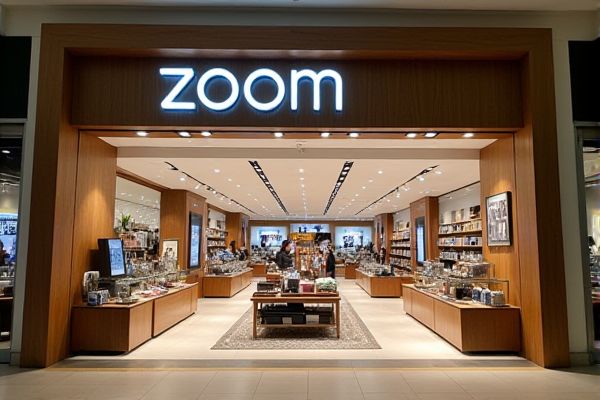
India's retail landscape features major brands such as Reliance Retail, which has expanded rapidly with a diverse portfolio including groceries, electronics, and fashion. As consumers increasingly prefer online shopping, e-commerce platforms like Flipkart and Amazon India are also key players. Your shopping habits may reflect a growing trend towards sustainable products, with brands like Fabindia promoting eco-friendly items. The competition among these retail giants continues to shape market dynamics, affecting pricing, customer experience, and product availability.
Brands to consider
Reliance Retail
Reliance Retail is a leading retail conglomerate in India, known for its diverse offerings across various sectors, including groceries, apparel, and electronics. The brand operates a vast network of stores, including Reliance Fresh, Reliance Digital, and Reliance Trends, catering to different customer needs. With a focus on quality and affordability, Reliance Retail leverages advanced technology and supply chain efficiencies to enhance the shopping experience. Your shopping experience is enriched by the brand's commitment to sustainability and innovation, positioning it as a significant player in the Indian retail market.
Future Group (Big Bazaar)
Future Group operates Big Bazaar, a prominent retail brand in India known for its extensive range of products, including groceries, apparel, and electronics. Its hypermarket model attracts millions of customers seeking convenience and variety under one roof. The brand emphasizes affordability, frequently offering promotional discounts and loyalty programs that enhance customer savings. With a strong presence in urban and semi-urban locations, Big Bazaar effectively caters to diverse consumer needs while adapting to regional preferences. The integration of technology in operations streamlines shopping experiences, making it a notable option for your retail choices in India.
Shoppers Stop
Shoppers Stop is a prominent retail brand in India, known for offering a diverse range of products, including apparel, accessories, and home essentials across various categories. With a strong presence in major cities, Shoppers Stop operates numerous stores and an efficient e-commerce platform, ensuring convenience for customers. The brand is recognized for its commitment to quality and customer service, providing a shopping experience that caters to the preferences of urban consumers. Moreover, Shoppers Stop frequently launches promotions and loyalty programs, benefiting frequent shoppers and enhancing customer engagement.
TATA Cliq
TATA Cliq is recognized as a prominent retail brand in India, offering a wide range of products from electronics to fashion. With a robust online platform and a user-friendly interface, it supports convenient shopping experiences for customers. The partnership with various trusted brands ensures quality and authenticity, catering to diverse consumer needs. You can also benefit from exclusive deals and discounts, enhancing your shopping experience in the competitive Indian market. TATA Cliq's focus on customer service and prompt delivery further solidifies its reputation as a reliable retail option.
Fabindia
Fabindia is a prominent retail brand in India, known for its handcrafted products that promote traditional Indian craftsmanship. The brand offers a wide variety of apparel, home decor, and personal care items, emphasizing sustainable and organic materials. By sourcing from local artisans and weavers, Fabindia supports rural communities and preserves cultural heritage. The brand's commitment to ethical practices aligns with a growing consumer interest in sustainability and social responsibility, making it a viable choice for those seeking authentic Indian products.
Growth Trajectory
The growth trajectory of retail brands in India is significantly influenced by the increasing internet penetration and mobile commerce. Major players like Reliance Retail and Flipkart are expanding their footprints, catering to diverse consumer needs. The shift towards omnichannel strategies allows brands to integrate online and offline experiences, maximizing customer engagement. Your brand can benefit from understanding local consumer behavior, which is driven by urbanization and rising disposable incomes.
Consumer Preferences
Consumer preferences for retail brands in India are influenced by factors like price sensitivity, product variety, and brand loyalty. Major players such as Reliance Retail and Walmart's Flipkart cater to diverse demographics, offering everything from electronics to groceries. The rise of e-commerce has shifted shopping habits, making convenience a priority for urban shoppers. You may notice that local brands often compete by appealing to regional tastes and cultural preferences, thereby enhancing customer engagement.
Digital Integration
Digital integration in the retail sector in India involves the seamless incorporation of technology into various aspects of business operations. This transformation includes e-commerce platforms, mobile applications, and data analytics to enhance consumer experiences. Companies like Reliance Retail leverage digital tools to optimize supply chains and improve customer engagement. Your brand can benefit from adopting these innovations to remain competitive in the rapidly evolving Indian market.
Market Competition
The retail brand landscape in India is highly competitive, characterized by both local and international players. Companies like Reliance Retail and Future Retail are significant entities actively vying for market share alongside global giants such as Walmart and Amazon. Regional preferences and consumer behavior heavily influence retail strategies, driving brands to adapt their offerings. E-commerce growth has intensified this competition, leading to innovative approaches in customer engagement and supply chain management. Understanding market dynamics is pivotal for any retail brand to thrive in this environment.
Sustainability Practices
Retail brands in India are increasingly adopting sustainability practices to address environmental concerns. Companies like Fabindia focus on sourcing eco-friendly materials and supporting local artisans, which promotes sustainable livelihoods. Implementing energy-efficient technologies in stores can reduce their carbon footprint while minimizing waste through recycling programs aids in responsible consumption. Engaging consumers through awareness campaigns can help foster a culture of sustainability, making it a shared responsibility. Your role as a consumer can further drive these initiatives, encouraging brands to continue their sustainable efforts.
 indiabrand.org
indiabrand.org